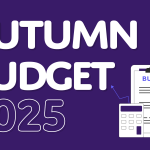If you’re a UK or EEA resident working at sea, you may be entitled to 100% exemption from UK income tax under the seafarers earnings deduction scheme. It’s a generous relief designed to support those whose duties take them beyond the UK’s borders – but to benefit, you’ll need to meet the eligibility rules and get your tax return right.
Here’s everything you need to know about seafarers earnings deduction, how to qualify, and how to file your return correctly.
What is the Seafarers Earnings Deduction?
Seafarers earnings deduction allows 100% of earnings from onboard a ship to be exempt from UK income tax. A seafarer’s duties must be performed outside of the UK to be eligible for the tax deduction.
To get the deduction, you must have:
- Worked on a ship
- Worked outside the UK for a minimum of 365 days
- Been a resident in the UK for an EEA State for tax purposes
You can’t claim the seafarers earnings deduction if you were a Crown employee (such as the Royal Navy) or working on offshore installations like oil rigs or wind farms.
If you’re still unsure whether you qualify, the GOV.UK website has a self-assessment help sheet (HS205) to help you decide if you’re eligible for the deduction.
How Do I Complete My Seafarers Tax Return?
Even if you don’t owe tax on your income from employment at sea, as a UK resident, HMRC will still expect you to declare this income on your self-assessment return.
You’ll need to keep the following records:
- A completed working sheet (HS205)
- Air tickets and travel vouchers
- Hotel bills and receipts
- Passports and visas
- Seafarers discharge book
- Freeboard logs of the ships you worked on
If you were a UK resident during the tax year, you’ll need to register for self-assessment and be able to provide details of the year you’re claiming this deduction for. You’ll then need to submit your supporting records, including the HS205 form, to HMRC.
When is the Seafarers Tax Return Deadline?
Don’t miss the deadline – your seafarers tax return must be submitted by 31st January following the end of the tax year you’re claiming for. That gives you around 9 months to get your records in order and file your return on time.
Seafarers Earnings Deduction FAQs
Do seafarers pay National Insurance?
Yes, seafarers usually still have to make National Insurance contributions, even if they don’t owe income tax. Factors such as where you’re legally resident or domiciled will be taken into account when calculating this.
How many days holiday per year can be included in the build-up of a claim?
There’s no official limit to how much holiday you can take abroad when building a seafarers earnings deduction claim. What matters is the total number of qualifying days you’ve spent outside of the UK during the 365 day period.
If I have another job within the UK, will this affect my claim?
A secondary UK job won’t affect your claim. However, you must declare all income on your tax return – including earnings from other employment – as this could affect your overall tax liability.
Can I get help completing my seafarers tax return?
Yes. At 360 Accountants, our dedicated tax team has extensive experience supporting merchant seamen, fishermen and seafarers with their self-assessment tax returns. We can help ensure accurate and compliance filing, so you can claim your full seafarers earnings deduction, reduce your tax bill, and recover any overpaid tax.
Need Help Claiming Seafarers Earnings Deduction?
The rules around seafarers tax can be complex – especially when you’re working across international waters, ports and time zones. Our experienced team at 360 Accountants are here to take the stress out of the process. From checking your eligibility to filing your return, we’ll make sure you’re making the most of the seafarers earnings deduction.
Get in touch with 360 Accountants today for expert help with your tax return and to find out if you could save money by claiming this valuable tax relief.




